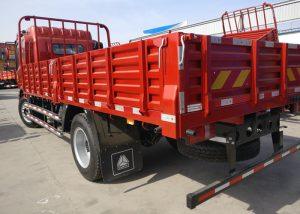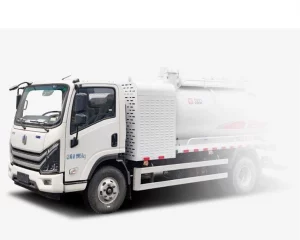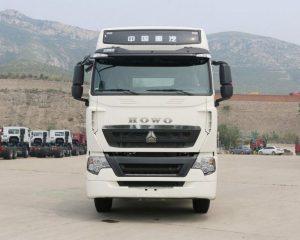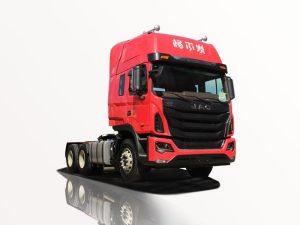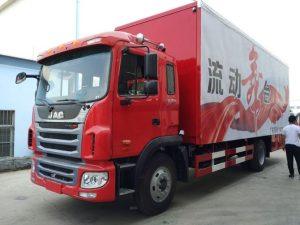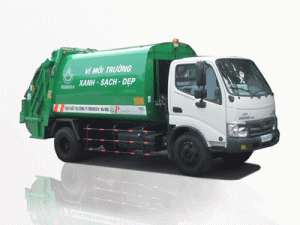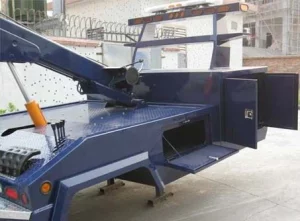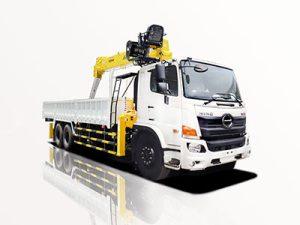Monday to Saturday - 8:00 -17:30
Ultimate Guide to Roll Off Compactors: Everything You Need to Know
Roll off compactors are heavy-duty machines designed to manage and compact waste efficiently. These robust units play an integral role in various industries, including construction, manufacturing, and municipal waste management. In this comprehensive guide, we’ll explore everything you need to know about roll off compactors, from their functionality and types to maintenance tips and practical examples. Let’s dive in!
What is a Roll Off Compactor?
A roll off compactor is a specialized piece of equipment used primarily for waste management. It combines a container and a compaction mechanism, allowing waste to be securely stored and compacted in a single unit. These machines make it easier to manage large volumes of waste, reduce the frequency of disposal trips, and minimize the overall environmental impact.
Key Components of a Roll Off Compactor
- Container: The main body where waste is collected.
- Compaction System: Mechanism that compresses the waste for efficient storage.
- Hydraulic System: Provides the force needed for the compaction process.
- Control Panel: Interface for operating the machine safely.
Types of Roll Off Compactors
1. Stationary Compactors
Stationary compactors are designed to stay in one location and are often used in commercial settings. They work by compacting waste into containers that need to be replaced or rolled off when full.
2. Portable Compactors
Portable compactors can be moved around job sites. This flexibility makes them ideal for construction projects or temporary waste containment solutions.
3. Self-Contained Compactors
These units integrate the compaction mechanism within a sealed container, making them suitable for liquid or hazardous waste management. They prevent leaks and odors while allowing for efficient waste handling.
4. Vertical Compactors
Vertical compactors are more compact than other types and are suitable for smaller businesses. They can effectively compact waste while occupying minimal space.
How Roll Off Compactors Work
Roll off compactors work by utilizing a hydraulic system to compress waste within the container. Here’s a breakdown of the process:
Step-by-Step Operation
- Loading Waste: Waste is loaded into the compactor’s container.
- Activation: The operator activates the compaction mechanism using the control panel.
- Compaction: The hydraulic system compresses the waste, reducing its volume.
- Monitoring: The operator monitors the compaction process until the desired compacting efficiency is achieved.
- Disposal: Once full, the container is detached and replaced with an empty one.
Advantages of Using Roll Off Compactors
1. Space Efficiency
By compacting waste, roll off compactors significantly reduce the volume of materials, saving valuable space in junkyards and landfills.
2. Cost-Effective
Utilizing roll off compactors cuts down on waste removal frequency and associated costs.
3. Environmental Benefits
Reducing the volume of waste transported helps lower carbon emissions associated with transportation and minimizes landfill overflow.
4. Safety and Sanitation
These machines help manage waste securely, limiting odors and pest problems that can arise from loose trash.
Applications of Roll Off Compactors
1. Construction Sites
Roll off compactors are incredibly beneficial for construction sites, where large volumes of debris are generated. They help manage waste materials efficiently, ensuring a clean and safe working environment.
2. Manufacturing Facilities
In manufacturing, roll off compactors manage scrap materials effectively, reducing storage costs and waste disposal issues.
3. Municipal Waste Management
Municipalities utilize roll off compactors to handle waste from various community sources, providing a streamlined waste management solution.
4. Demolition Projects
During demolition, roll off compactors help manage the debris, allowing for easier site cleanup and waste disposal.
Choosing the Right Roll Off Compactor
Factors to Consider
| Factor | Description |
|---|---|
| Waste Type | Consider the type of waste you will be compressing (dry, wet, hazardous, etc.). |
| Volume | Assess the average volume of waste generated to determine the size of the compactor required. |
| Space Availability | Evaluate the space where the compactor will be used to make sure it fits and operates safely. |
| Budget | Set a budget for purchasing or renting a roll off compactor, factoring in additional costs for maintenance. |
Tips for Effective Use
- Regularly check the hydraulic fluid levels to ensure optimal performance.
- Keep the container clean to prevent residues and odors from building up.
- Train operators on safe usage to minimize accidents.
- Conduct routine maintenance checks to keep the equipment running efficiently.
Maintenance of Roll Off Compactors
Routine Maintenance Tasks
- Fluid Checks: Regularly monitor hydraulic fluid and change it according to manufacturer guidelines.
- Inspect Components: Routinely inspect the compaction mechanism and replace worn parts.
- Clean the Unit: Ensure the compactor is free from debris and buildup to maintain performance.
Common Issues and Troubleshooting
- Compactor Not Operating: Check hydraulic fluid levels and electrical connections.
- Poor Compaction: Inspect the compaction plate for obstructions or wear.
- Leaking Fluids: Identify the source of the leak and address damaged seals or hoses.
Cost of Roll Off Compactors
The cost of a roll off compactor can vary based on several factors, including size, type, and specific features. Here’s a basic overview:
| Type | Estimated Cost |
|---|---|
| Stationary Compactors | $15,000 – $30,000 |
| Portable Compactors | $10,000 – $25,000 |
| Self-Contained Compactors | $20,000 – $35,000 |
| Vertical Compactors | $5,000 – $15,000 |
Roll Off Compactor Rentals
For businesses that need a compactor temporarily, rentals can be a cost-effective solution. Rental agreements are typically available for various durations, and renting allows access to the latest models without a significant upfront investment.
Benefits of Renting
- No long-term commitment or high upfront costs.
- Access to newer technology and models.
- Flexible rental terms based on project needs.
Things to Consider When Renting
- Rental rates: Understand all costs involved, including delivery and pick-up fees.
- Condition of the unit: Inspect before agreeing to a rental contract.
- Support: Ensure the rental company provides support for any operational issues.
Frequently Asked Questions (FAQs)
1. What is the primary use of a roll off compactor?
The primary use of a roll off compactor is to compact waste materials, making waste management more efficient by reducing the volume of materials stored in the container.
2. How often should I maintain my roll off compactor?
Routine maintenance should be conducted monthly, but check hydraulic fluid levels and perform cleaning as needed to ensure optimal performance.
3. Can roll off compactors handle hazardous waste?
Self-contained compactors are designed for liquid and hazardous waste, but it’s essential to ensure compliance with local regulations regarding hazardous materials.
4. Are roll off compactors eco-friendly?
Yes, roll off compactors can be eco-friendly as they reduce the frequency of waste transport, subsequently lowering carbon emissions and promoting recycling efforts.
5. What are the safety measures to consider when operating a roll off compactor?
Operators should undergo proper training, wear safety gear, conduct routine checks on the machine, and maintain a safe distance from moving parts during operation.
6. How much does it cost to rent a roll off compactor?
The rental cost can vary widely depending on the type and duration but typically ranges from $100 to $500 per day, depending on the equipment and terms.


